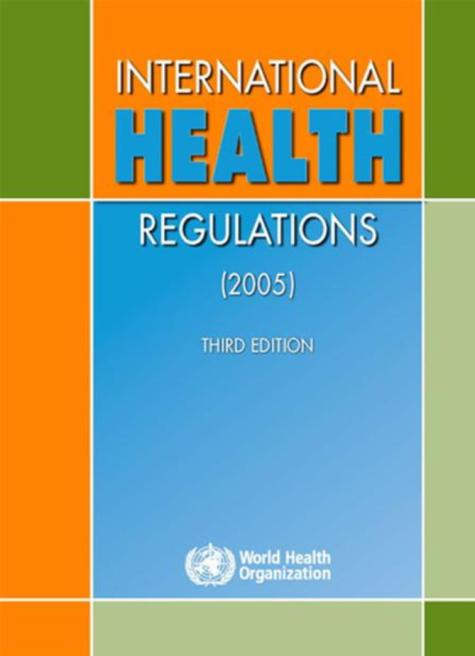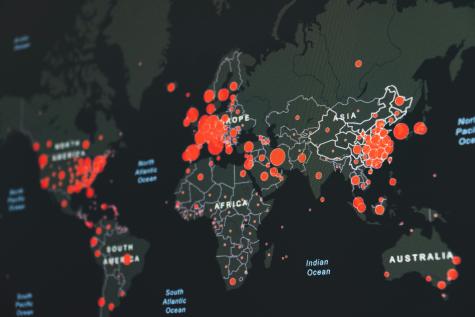International Health Regulations - IHR

➡️ International Health Regulations (IHR) - Reform Proposals and Critical Review
The International Health Regulations are a legally binding framework first adopted by the WHO in 1969. 196 countries, including the 194 WHO Member States agreed to implement the regulations ‘to prevent, protect against, control and provide a public health response to the international spread of disease.’
The IHR Emergency Committee members are selected according to the disease and the nature of the event, all recommendations made by them are temporary and require three-monthly reviews. The IHR require countries to build and maintain the capacity to detect, assess, report, and respond to public health events. The IHR is not specific to one disease but rather covers a range of health emergencies, including infectious diseases, chemical, and radiological events.
The regulations were last revised in 2005, in response to the 2002 SARS outbreak. The revisions broadened the scope of the regulations to cover existing, new, and re-emerging diseases. A new requirement obligates states to notify WHO of any event with the potential to create a public health emergency of international concern.
Alongside the creation of the new ➡️ WHO Pandemic Treaty reforms have been proposed for the IHR as a new collective strategy for global health security, financing, disease surveillance, vaccine equity, global collaboration, and transparency.
The IHR Core Capacities include:
-
Legislation and policy
-
Coordination
-
Surveillance
-
Response
-
Preparedness
-
Risk communication
-
Human resources
-
Laboratory
-
Points of entry
-
Public health concerns including infectious, chemical, radiological, food, and zoonosis

How Effective have the IHR been in Managing Global Health Emergencies?
In recent years, the IHR have faced significant challenges in managing global health emergencies including Swine Flu, Ebola, Zika, COVID-19, and monekypox outbreaks.
The effectiveness of the IHR during these crises has varied, with some successes in coordinating international effort and information sharing. However, the regulations were criticised for their limited enforceability, delayed reporting, and weak response measures.
Criticism of the WHOs handling of the West African Ebola epidemic brought renewed scrutiny to the IHR. By 2015, 127 of the 196 signatory countries were unable to meet the standards outlined in the agreement. Reports by high-level panels revealed the three main challenges to be:
-
Countries’ core capacities
-
Unjustified restrictions (goods and travel)
-
Inability to detect and report outbreaks quickly
The COVID-19 pandemic exposed further gaps in global preparedness, response, international cooperation, and lack of timeliness. Legal and public health experts as well as various member states have called for a review and strengthening of the framework.
Critics focus on the risk of politicisation of disease outbreaks and warn about the close relationship the WHO has with the pharmaceutical industry. These two factors contribute to slow action, and lack of compliance and accountability. Other concerns include the insufficient support for lower-income countries, lack of transparency, and unfair resource allocation.
While there is definite room for improvement regarding the effectiveness of the IHR, misinformation, sensationalised news and hysteria on social media have fed an overly critical rhetoric. This is especially evident against the backdrop of WHO and mainstream media silence.
Accusations of the WHO attempting to centralise power and override national sovereignty are baseless. Given that all member states must agree before any significant changes, it is safe to label these claims as nothing more than conspiracy theories.

What Reforms have been Proposed to Strengthen the IHR?
Scientists all agree that the next pandemic is coming, so the need for more joined-up health security efforts is essential. Various reforms have been suggested including the introduction of a global health emergency workforce, increased funding for health infrastructure in developing countries, and the creation of a compliance and accountability framework.
Other proposals involve the better use of technology for disease surveillance and reporting, enhancing the WHO's authority to independently verify outbreak reports, and establishing clear and timely processes for declaring public health emergencies of international concern.
In the past, inequalities in resources and an imbalance of power between high- and low-income countries have prevented meaningful change. Going forward, we must ensure that the IHR are built upon a foundation of equity, where rights and responsibilities are well coordinated, benefits and burdens are fairly distributed, national and global interests are carefully balanced, and both short and long-term assistance are provided.
In light of the devestating human cost of the recent Covid-19 pandemic, we must do everything in our power to prevent this level of widespread suffering from happening again. International cooperation, preparedness, and strengthening our pandemic response are key elements to protecting public health.
Stay tuned for updates on the reforms and the finalisation of the WHO Pandemic Treaty.
Author: Rachael Mellor 16.04.24 licensed under CC BY-NC-SA 4.0
For more information on the International Health Regulations see below ⬇️
- WHO - International Health Regulations407410
- WHO - Review Committee on the Functioning of the International Health Regulations (2005) during the COVID-19 Response407411
- International Health Regulations - Wikipedia404922
- @Africahealth24 - Pan-African Epidemic/Pandemic WorkingGroup407943
- @SHARP_EU - Action group on Strengthened International Health Regulations407944
- Tweet: The Japanese come out in large numbers to say “No” to the WHO’s attempt to radicalise international health regulations & give itself the power to declare & manage futu…407945
- Tweet: Why won't the Government tell us what the WHO wants us to sign up to with its amended International Health Regulations? - Mike Fairclough 11.04.24407946
- Tweet: A Ugandan politician raising the lack of transparency and consultation around the proposed amendments to the International Health Regulations (2005), which are being v…407947
- Tweet: In @FilesGeneva, the @GHLConsortium (led by @lforman) examines #HumanRights limitations in #IHR reforms - Benjamin Mason Meier 08.03.24407951
- Member States consider proposed amendments to the International Health Regulations with discussions on equity to continue - WHO 19.02.24407418
- Seventh meeting of the Working Group on Amendments to the International Health Regulations (2005) - WHO 09.02.24407422
- Video: International Health Regulations Amendments Debate in Westminster Hall - Andrew Bridgen MP 18.12.23407950
- IHR Negotiations to Continue Until May 2024 - Health Policy Watch 09.10.23407421
- International Health Regulations (2005) - Review and discussion of proposed amendments to article 48-49: The Emergency Committee - PAHO 24.07.23407414
- Video: New WHO International Health Regulations concerns - DR John Campbell 10.07.23407949
- Governments hold third round of discussions on proposed amendments to the International Health Regulations (2005) - WHO 21.04.23407412
- The Proposed Amendments to the International Health Regulations: An Analysis - Opinio Juris 27.02.23407420
- Amendments to International Health Regulations Focus on Accountability, Compliance and Equity - HPW 20.01.23407948
- Global challenges in implementing the international health regulations: a scoping review - Population Medicine, 2023407409
- Journal: Strengths and weaknesses in the implementation of the IHR (2005) in low GNI countries - Oxford 25.10.22407417
- The future of the International Health Regulations - Lancet 07/22407402
- First steps in reforming global health emergency rules adopted at WHO meeting - Reuters 28.05.22407423
- Countries reach deal on changes to global health rules - Politico 28.05.22407425
- Article-by-Article Compilation of Proposed Amendments to the International Health Regulations (2005) submitted in accordance with decision WHA75(9) - WHO, 2022407419
- The problems of International Health Regulations (IHR) in the process of responding to COVID-19 and improvement measures to improve its effectiveness - JGHS 08.12.21 407405
- WHO to Review International Health Regulations During Pandemic - VOA 08.09.20407415
- Human Rights Must Be Central to the International Health Regulations - HHR 26.08.20407413
- The International Health Regulations (2005), the threat of populism and the COVID-19 pandemic - BMC 28.07.20407416
- An analysis of International Health Regulations Emergency Committees and Public Health Emergency of International Concern Designations - Relief Web 16.06.20407407
- A Critical Appraisal of the World Health Organization’s International Health Regulations (2005) in Times of Pandemic: It Is Time for Revision - NCBI 03.04.20407406
- International Health Regulations (2005) – Third edition - WHO 01.01.16407675
- The International Health Regulations 10 years on: the governing framework for global health security - Lancet 22.11.15407408
- Strengthening global health security by embedding the International Health Regulations requirements into national health systems - BMJ 407403
- An analysis of International Health Regulations Emergency Committees and Public Health Emergency of International Concern Designations - BMJ 407404
- An analysis of WHO’s Temporary Recommendations on international travel and trade measures during Public Health Emergencies of International Concern - BMJ 407952